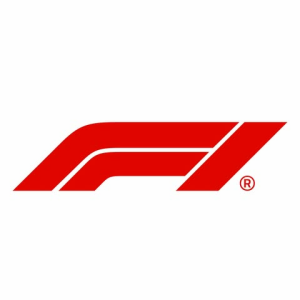Yesterday at 12:20
On a grey October day at the Nurburgring, Lewis Hamilton achieved
what many deemed impossible, with the 2020 Eifel Grand Prix marking
the moment the Briton equalled Michael Schumacher's record of 91 F1
victories. Hamilton was racing on German soil, matching the record
of Germany's most successful F1 driver, with Mick Schumacher
present at the circuit in his role with Alfa Romeo, before his F1
debut came with Haas the following campaign. The timing created a
meaningful backdrop for the achievement, but the British driver's
path to another milestone in history was not entirely
straightforward. Starting second behind Mercedes team-mate Valtteri
Bottas, Hamilton made an aggressive lunge at Turn 1 but found
Bottas unwilling to yield. The Finn's defence temporarily kept him
ahead; however, the decisive moment came on Lap 13 when Bottas
locked up at the first corner, allowing Hamilton through. Six laps
later, the Finn's power unit gave way, leaving Hamilton to manage
his tyres and gap to Max Verstappen's Red Bull in pursuit. Behind,
Daniel Ricciardo took his first podium with Renault. A record 14
years in the making Schumacher's 91st victory had come at the 2006
Chinese Grand Prix in Shanghai, his final triumph before retiring
from Ferrari; his comeback with Mercedes, between 2010 and 2012,
would yield no further wins. For 14 years, that figure stood as
Formula 1's most challenging benchmark. When Schumacher surpassed
Alain Prost's 51 wins in 2001, few imagined anyone would come close
to his eventual tally of 91. The German's dominance had been
comprehensive. His 72 Ferrari victories alone would have
comfortably exceeded most drivers' career tallies, whilst his
40-win margin over second-placed Prost seemed formidable in an era
when seasons rarely exceeded 20 races. The notable events occurred
after the chequered flag. As Hamilton climbed from his Mercedes,
the magnitude of his achievement was still processing. "When I came
into the pit lane, that's only when I realised I had equalled it,"
he later admitted. "I hadn't even computed it when I had crossed
the line." Then came the weekend's defining moment. Mick
Schumacher, Michael's son, approached Hamilton during the post-race
interviews carrying one of his father's race-worn Mercedes helmets
from 2012. The gesture, orchestrated by the Schumacher family,
represented recognition of Hamilton's achievement that clearly
affected the British driver. "I don't even know what to say,"
Hamilton reflected. "When you grow up watching someone and you
generally idolise them, in terms of the quality of the driver they
are, but what they're able to continuously do year on year and race
and race. "I remember watching Michael winning all those races when
I was a kid and playing racing games with my brother and choosing
to play as Michael," he recalled. "I dreamed of being there myself,
but I don't think anyone, and especially me, imagined another
driver getting anywhere near Michael's records." A pandemic-era
milestone The 2020 Eifel Grand Prix existed only because of
extraordinary circumstances. The Nurburgring wasn't part of the
original calendar but was added when COVID-19 disrupted F1's
planned schedule. The pandemic forced extensive revisions, with the
season starting months late and races held behind closed doors
under strict protocols. That weekend bore the pandemic's influence,
too. Mercedes had flown in emergency staff replacements after
discovering coronavirus cases amongst their personnel, whilst Lance
Stroll withdrew 30 minutes before Saturday's final practice after
falling ill, later testing positive for COVID-19. Hamilton's 91st
win did not come at Monaco or Silverstone, but at an addition to a
disrupted calendar, which aptly provided the perfect opportunity
for an emotional passing of the torch.



